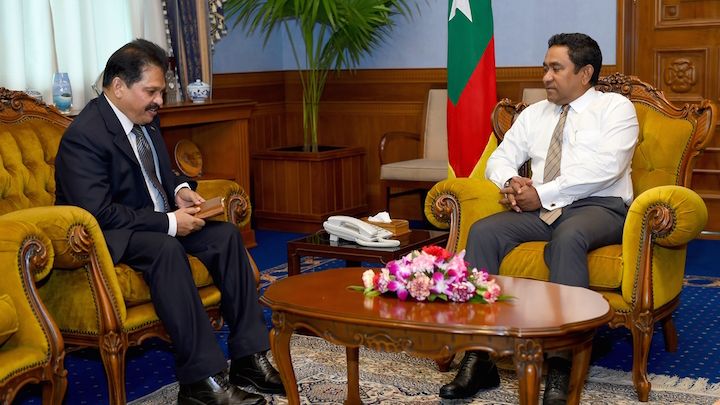Yameen lauds India’s “Neighbourhood First” policy
“All SAARC Member States must work collectively together to deliver human security for our people, and ensure that terrorist organisations have no room to spread their venom in the region,” Yameen said.

09 Dec 2015, 09:00
President Abdulla Yameen has lauded India’s ‘Neighbourhood First’ foreign policy and urged member states of the South Asian Association for Regional Cooperation to prioritise improving relations with each other.
In a message yesterday on the occasion of SAARC charter day, Yameen called on neighbouring countries to work together to combat cross-border terrorism and violent extremism in order to ensure peace and prosperity in the region.
“All SAARC Member States must work collectively together to deliver human security for our people, and ensure that terrorist organisations have no room to spread their venom in the region,” he said.
“The foreign policies of SAARC Member States should therefore prioritise improving relations with its neighbours, as a peaceful region is integral to ensuring peaceful nations. In this regard, the Maldives welcomes Prime Minister Narendra Modi’s ‘Neighbourhood First’ policy, and encourages other member states to adopt similar stances.”
Become a member
Get full access to our archive and personalise your experience.
Already a member?
Discussion
No comments yet. Be the first to share your thoughts!
No comments yet. Be the first to join the conversation!
Join the Conversation
Sign in to share your thoughts under an alias and take part in the discussion. Independent journalism thrives on open, respectful debate — your voice matters.




